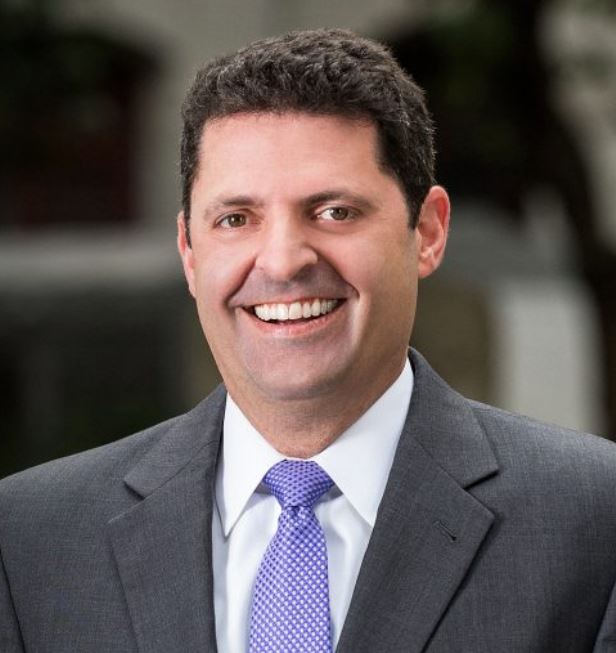Leaders of global law firms are learning from their experiences in 2020 to better ready their firms for 2021 and beyond
As the U.S. and other parts of the world emerge from the pandemic, new hope and new ways of managing today’s law firms spring forth into what has colloquially been called a new normal.
Yet, law firm leaders would do well to remember that this drastic disruption to business means that leaders must stay alert for any new crisis, ready to act immediately on any business opportunities and threats.
In this four-piece Special Edition of Practice Innovations, we’ll examine the challenges as the legal industry emerges from the pandemic crisis
All over the world, law firm leaders took many different approaches to addressing the pandemic and should be applauded for their efforts. Now as much of the world finds itself emerging from the worst of the pandemic, firm leaders similarly differ as to how they plan to move forward.
We spoke to a number of leaders from law firms from around the world to see what differing approaches to getting back to business are being employed.
Preparing the plan
To begin with, many law firms are starting to announce their return-to-office plans and how they will deal with ongoing remote working opportunities, which of course, vary greatly by jurisdiction, client location, and type of practice.
In Canada, for example, Dave Leonard, CEO and managing partner at McCarthy Tétrault, says remote working will continue to be an option for many employees. “The details are still being worked out, but likely everyone who can perform their function remotely will likely be able to do so one or two days per week,” Leonard says, adding that the firm plans to take into account many external factors, including advice and guidance from government agencies, health and safety experts, its landlords, and its people when finalizing its plans.

Mathieu Shapiro, managing partner at Obermayer Rebmann Maxwell & Hippel in Philadelphia, says his firm anticipates “a return plan that will maintain some increased degree of flexibility.” Others agree, though they acknowledge that working remotely may have some issues related to collaboration, employee bonding, and firm culture that still have to be thought out. However, they add, this has always been the case for individuals working in remote offices or in a regional office far from the firm’s headquarters.
Indeed, the pandemic was the push that many law firms needed to facilitate greater collaboration across and often within offices in a manner that did not previously occur. Many law firm team members benefited by building stronger relationships with the ease of use of virtual platforms, and many also saw the same benefit with client relationships.
Colin Cohen, managing partner at Hong Kong’s Boase Cohen & Collins, says it’s all about adapting to circumstances — something firm leaders plan to keep in mind going forward. “The idea that we have to travel all the time for face-to-face meetings is gone,” Cohen explains. “We have not lost anything — to get on an airplane for many meetings is just not necessary. And I think this will stick with us into the future.”
While certainly nothing fully replaces face-to-face interaction, the necessity to do this for every meeting is no longer required, he says. “Our clients’ expectations for in-person meetings are not what they used to be — we don’t have to be at every cocktail reception or conference.”

Preparing to return
For the most part, returning to the office also will likely be a hybrid approach for most firms — again, varying by jurisdiction, client location, and type of practice. Juan Pablo Cardinal, managing partner at Argentina’s Richards Cardinal Tutzer Zabala Zaefferer says as winter approaches South America, the firm will not be contemplating a return to the office until September or October at the earliest, and “that is only if 70% of the population is vaccinated, which as of now is not a certainty.”
“The firm’s priority now is to try to keep people together through small gatherings or informal meetings or lunches because we know it will take a while to get back to the office,” Cardinal says.
In Hong Kong, Cohen notes how different that country’s response to the pandemic was. “Borders were closed quickly, and we worked at the office with very few people working remotely,” Cohen explains. “Everyone was masked up and respectful of the rules.”
Obermayer’s Shapiro agrees that culture is key in determining a firm’s approach to returning to the office. “Our culture is fairly laid back, so we’ve always offered flexible remote working opportunities,” Shapiro says. “We trust our attorneys to manage their work and other life obligations; and given the relative ease at which our administrative support teams were able to transition to a remote work environment, we have no concrete plans to return quite yet, but we do anticipate a return plan that will maintain some increased degree of flexibility.”

At the same time, Shapiro admits that management worries that continued physical separation will diminish Obermayer’s culture, its sense of community, and its young lawyers’ development. “Fortunately, our firm’s social committee has done a fantastic job putting various virtual and outdoor activities together,” he adds. “And this has really helped foster our family-like culture and keep us connected to one another.”
Remembering the lessons learned
The pandemic has brought about some changes, some lessons learned, and all firm leaders interviewed say those won’t be forgotten once business resumes some amount of normalcy.
In Hong Kong, Cohen reflects, life is better in some ways. “I’m much fitter and more focused on health,” he says. “We continue to work just as much for our clients. Efficiency has increased with the use of technology, and we have increased communication with our clients.”
Shapiro agrees, especially about the importance of technology going forward. “As tempting as it might be to stick to what we know, or even to save money, I want to continue to encourage new uses of technology,” he says, adding that the technology upgrades the firm implemented even before the pandemic were a large reason why it was able to successfully transition to its virtual workspace. “Going forward, we will continue investing in those resources that make flexible working arrangement possible, and those things that ensure our cybersecurity is sufficiently robust to keep our client data protected.”
Even some of downsides to fully remote working can be managed, notes Cardinal. “Working remote can have its own set of issues — difficulty in bonding, lack of effective interaction, etc., so you have to have a plan for dealing with those issues,” he says, adding that this lesson will become part of training for new members of the firm. “I was proud that we have the capacity to adapt to new circumstances.”

Shapiro says that he often refers to Obermayer as a “family,” which means employees routinely check-in with each other to see how everyone is coping. “On one hand, a number of us have been extremely isolated for over a year, and are worried about public transportation and just being back in the office in general,” he observes. “On the other hand, there are those of us who can’t take this isolation and are lonely. And while we might try to keep up appearances, some of us can’t have everyone back in the office soon enough.”
Firm leaders also remain strongly focused on the pandemic’s impact today and how it might affect their firms’ strategic direction. Like other firm leaders, McCarthy Tétrault’s Leonard says the firm recently refreshed its strategic plan, given all the changes in the market and what clients may be expecting from their outside law firms post-pandemic.
Overall, firm leaders agreed that the pandemic has given them great pride in the actions and attitudes of their firm members, while helping them build new relationships and develop as leaders. All say they appreciate the incredible support and commitment of their team members throughout this crisis.
Leonard says that he and other leaders now know unequivocally that law firms cannot prepare for every crisis event, but managing those that do happen by being true to your values and culture will see you through. “Our people and our business are even more resilient than we could have imagined.”






